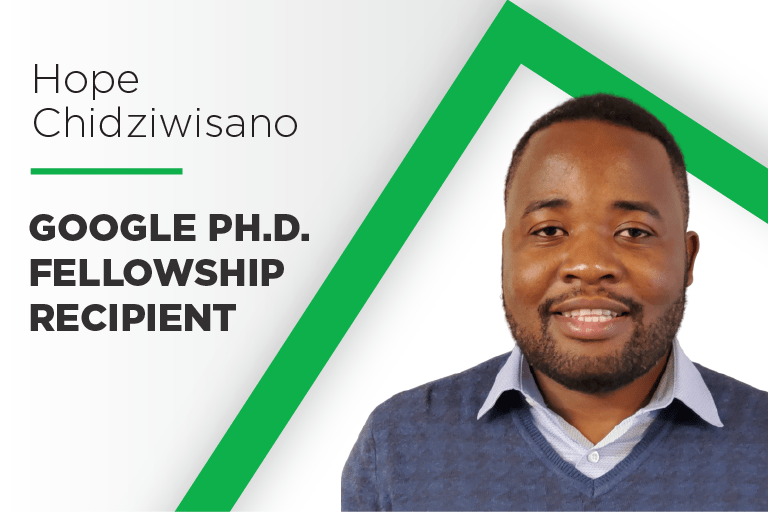Hope Chidziwisano, an Information and Media Ph.D. candidate in the College of Communication Arts and Sciences at Michigan State University, is a recipient of the 2021 Google Ph.D. Fellowship.
He is the first person from MSU to win a Google Ph.D. Fellowship.
The fellowship, given to students who are recognized by Google researchers “as some of the most promising young academics in the world” offers financial support as they pursue their Ph.D. Additionally, the fellowship connects recipients to Google Research Mentors.
Chidziwisano was awarded the fellowship in the Human Computer Interaction (HCI) category.
“I was thrilled to realize that the Google Ph.D. Fellowship results were out, and I was one of the awardees,” Chidziwisano said. “For the first time in my research career, I felt that my research is important, and its contributions matter.”
Chidziwisano’s research looks at designing sensor-based technologies, like smart watches and virtual assistants, and how they can be used in sub-Saharan African (SSA) homes – making them more accessible and more applicable to the challenges that arise there.
“I want to leverage the affordances of sensors and develop cutting-edge sensor-based technological solutions that meet the needs of people living in SSA,” he said. “Further, there are few HCI scholars from SSA, yet this field encourages making experiences visible by training local students to conduct design-oriented research.”
His Ph.D. advisor, Dr. Susan Wyche, associate professor in the Department of Media and Information and affiliate faculty in the African Studies Center, nominated Chidziwisano for the award.
“It is important for our Ph.D. students to have generous financial support while they pursue their degrees,” she said. “It is also important that they have opportunities to collaborate with researchers outside of MSU. Each Google Fellow is assigned a mentor—this is a valuable opportunity to learn about research, in particular, how it is conducted in a corporate environment.”
Chidziwisano said he plans to use the fellowship to write his dissertation and defend it.
"I plan to continue conducting research that examines the potential of using sensor-based technologies to support domestic activities in SSA,” he said. “I plan to dig deeper into the unintended consequences (e.g., privacy between family members) of sensors in homes of SSA. Further, I plan to integrate machine learning and deep learning techniques to investigate better models of sharing utilities (e.g., electricity and water) to minimize interruptions in this SSA."
With his work, Chidziwisano says he hopes to create a lasting impact that will empower those who live in SSA, as well as future researchers.
“I want to mentor the next generation of students and bring a different perspective that has been underrepresented for so long,” he said.
By Jennifer Trenkamp
